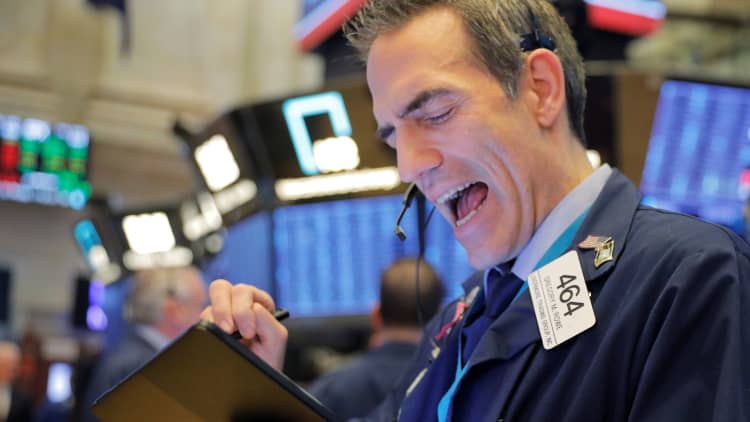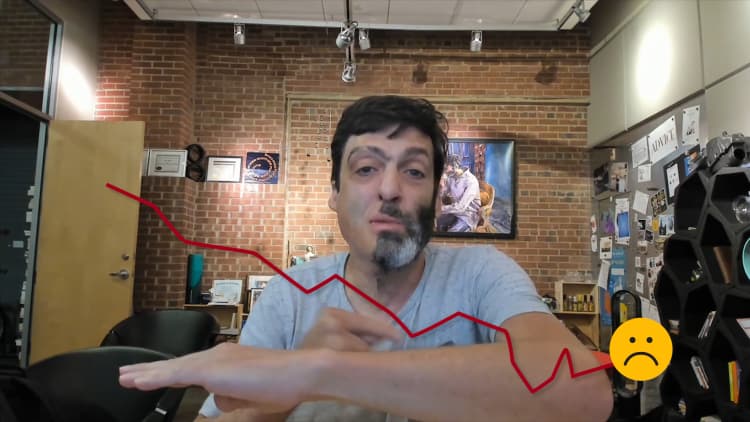There's a 70% chance that a recession will hit in the next six months, according to new research from the MIT Sloan School of Management and State Street Associates.
The researchers created an index comprised of four factors and then used the Mahalanobis distance — a measure initially used to analyze human skulls — to determine how current market conditions compare to prior recessions.
"The Mahalanobis distance was originally conceived to measure the statistical similarity of the values of a set of dimensions for a given skull to the average values of those dimensions for a chosen group of skulls," the researchers explained.
It measures the distance between a point and a certain distribution.
Using this principle, the researchers analyzed four market factors — industrial production, nonfarm payrolls, stock market return and the slope of the yield curve — on a monthly basis. They then measured how the current relationship between the four metrics compares to historical readings.

Looking at data back to 1916, the researchers said that the index was a reliable recession indicator since it rose leading up to every prior recession. They found that when the index topped 70%, the likelihood of a recession in the next six months rose to 70%.
As of November 2019, the reading on the index was 76%.
Of course, a number of economic indicators suggest that the economy is chugging along just fine.
In January, private payrolls posted the highest monthly gain since May 2015, and December housing starts soared to a 13-year high. The U.S. economy grew 2.1% in the fourth quarter of 2019, and 2.3% for the entire year. The U.S. and China signed a "phase one" trade deal in January after months of geopolitical tensions rocking the market. All of these factors suggest continued economic expansion ahead.
Even with recent market jitters, many Wall Street strategists are still forecasting gains for the year.
"The fundamental backdrop is supportive, in our view, and the fallout from the outbreak is unlikely to hurt [economic] activity prints over the medium term," Mislav Matejka, JPMorgan's head of global and European equity strategy, said in a note Monday. "Our call remains that one should not expect a US recession ahead of presidential elections."
- CNBC's Yun Li contributed to this report.



